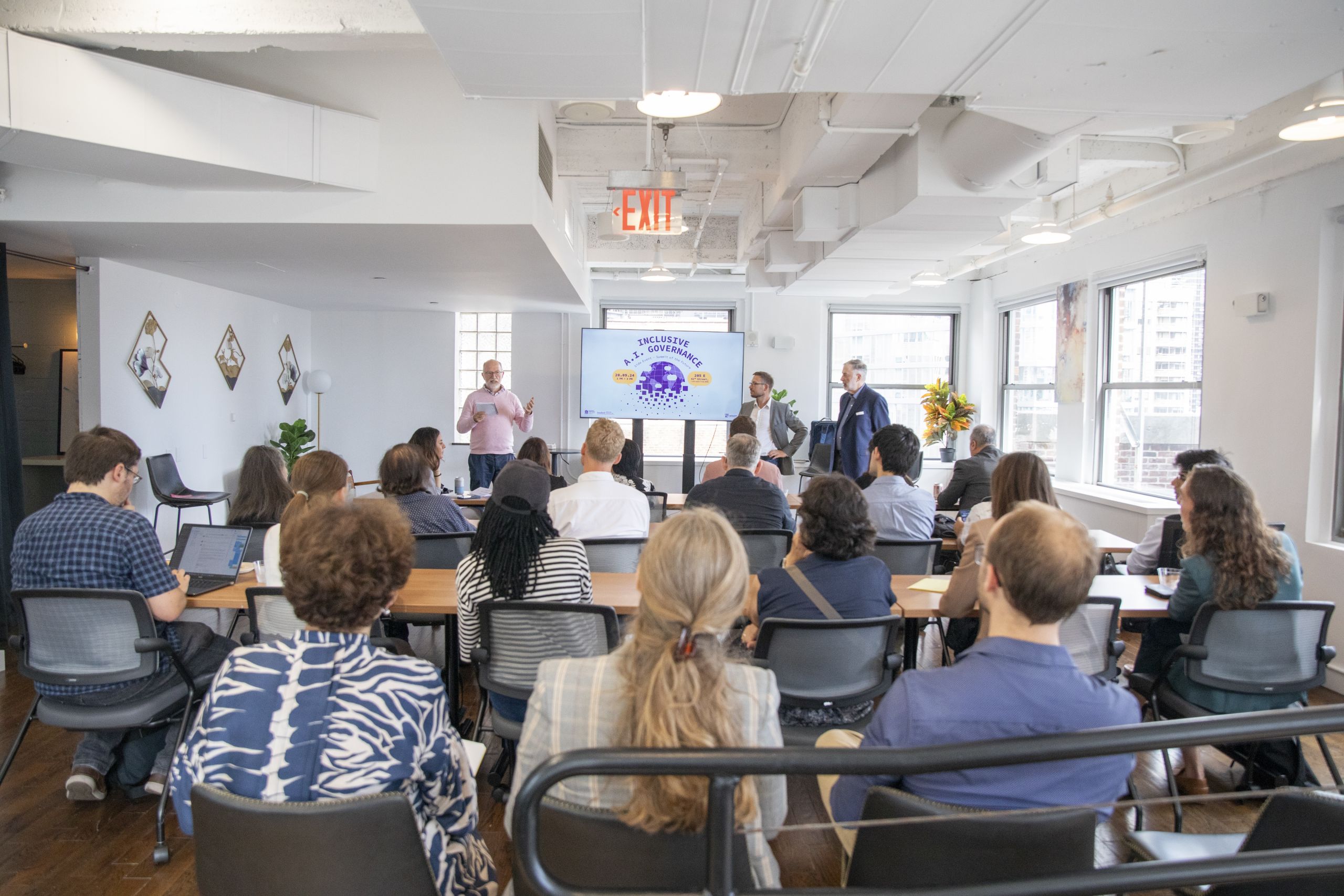Artificial Intelligence (AI) has a tremendous impact on humanity. During the UN’s Summit for the Future, a panel of experts(1) from various fields on AI proposed and adopted the Global Digital Compact. It’s almost as if the stars aligned, because in parallel with this Summit, we organized in New-York, alongside the Stanford Deliberative Democracy Lab and 1014, an event on the subject. Let us tell you all about it.
The Global Digital Compact, annexed to the Pact for the Future, constitutes the first major international agreement on AI regulation. It calls for the ethical and equitable use of technology, ensuring that AI benefits all of humanity, not just a handful of nations or private actors. In other words, the goal is to create a global framework for digital technologies, incorporating values such as inclusivity and sustainability.
At Missions Publiques, governance issues are at the heart of our missions. What governance will ensure that AI tools benefit everyone in a fair and equitable way? How can decisions related to AI and their global impact be made in cooperation with all stakeholders while emphasizing the inclusion of marginalized or underrepresented populations? One day after the adoption of the pact, we organized an event in collaboration with the Stanford Deliberative Democracy Lab to discuss a global deliberative process on AI governance, drawing on the experience of the global dialogue on the future of the Internet, We, The Internet, which we designed in 2020.
Our co-director Antoine Vergne, along with political science professor James Fishkin, director of the Stanford Deliberative Democracy Lab, presented the combined potential of decentralized citizen dialogues—meaning those held locally in every country in the world with local actors—and a global deliberative poll. The aim is to bring the ideas, questions, and proposals of citizens to the table of key actors who must agree on governance principles: the AI industry, governments, international organizations, and civil society.

“If such an ambitious deliberative process can be successfully conducted on a global scale on the topic of AI, it will create a historic precedent for involving the citizens of the world in addressing other global problems, such as climate change. It is in the UN’s interest to support this global deliberative process and to commit to considering and responding to the recommendations that will emerge from it,” concluded Hélène Landemore, professor of political science at Yale University and researcher at the Oxford Institute for Ethics in AI.
To contact us: antoine.vergne@missionspubliques.com






